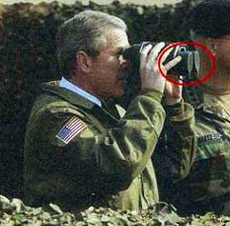The district elections and the propaganda for the constitutional amendment referendum were the two top stories of the week concerning internal politics. Nothing unusual happened during the district elections. Perhaps the results were a surprise, but the environment as a whole was just the way it was supposed to be. The struggle was going on between the candidates and their political (or economic) clans. There were a couple of schemes, including “the Republican against the Popular MP”, “everyone against the republicans”, “the land defenders against the federalists”, etc. Of course, some shots were fired in separate districts and there will be some more on Sunday, but those are just details and our society has gotten used to that. The important thing is that international observers gave a good evaluation of the elections.
As for the constitutional amendment referendum, the political forces are currently busy with making sure they have the right orientation. On October 18th, 22 Armenian political parties and approximately 200 NGOs signed a declaration stating that they were ready to go the extreme in order to make sure the people say “yes” to the constitutional amendments. Of course, this in itself is humorous because even the Prime Minister Andranik Markaryan himself had to confess that he personally did not know about those 22 political parties, but propaganda is propaganda. However, the representatives of those political parties were assured of themselves as they moved towards Mher Shahgeldyan to sign their names.
In any case, saying “yes” is a possibility. The “general enlistment” of intellectuals, well-known singers and experienced grandparents is ready: the propaganda clips are ready, etc. We even know how much is needed to assure a “yes” to the constitutional amendments-$4 million dollars (one “yes” costs $5 dollars) and there is no doubt that the results of the referendum are predictable. Unfortunately, the people in favor of the constitution are satisfied with the phrases being said and do not explain why we need to change our Constitution.
As for the opposition, it has been carrying out its functions in the villages rather than the academic halls in front of tens of cameras. They are doing the same thing in front of tens of villagers. The interesting thing though, is that the opposition is also satisfied with the phrases and does not state why the constitutional amendments must be accepted. After these amendments, it is possible to change the boundaries of Armenia without a referendum. It appears that the opposition leaders have discussed this for a long time and have come to the conclusion that this is the most negative side to all of this. They understand that the dual citizenship clause is dangerous, but they have probably warned everyone to not express themselves about that clause due to the fact that they don’t want to ruin their relations with Russia.
As for the events taking place at the Ministry of Foreign Affairs, the most noteworthy was the vice-state secretary of the U.S. Daniel Frid’s visit to Armenia. During the few hours that he was here, he managed to meet with President Robert Kocharyan, as well as other high-duty officials and representatives of the opposition. Details concerning the meeting are not known, but by collecting some evidence from here and there, we can get a clear image of what the meeting was all about.
First of all, Daniel Frid had come to Armenia to say that it was not as important to pass the constitutional amendments, but rather, to see that there are no falsifications during the referendum. Secondly, the vice-state secretary had come to announce that the negotiations regarding the Karabagh peace settlement were going to depend on the referendum and the quality of elections to take place in Azerbaijan. Thirdly, Mr. Frid stated that events in the region are developing at a rapid pace, but the “contradicting sides”(this probably refers to Russia) are developing at the same time also. Basically, the vice-president of the secretary of state of the U.S. (vice-foreign minister) had come to Armenia to clarify the real opportunities and outlooks for democracy in the Southern Caucasus. But why now, when we have the constitutional amendments referendum and the Azeri elections? The answer to this is because the U.S. State Department must already know what kind of evaluation it will give to the referendum and the Azeri elections. Those evaluations do not always correspond to reality, as we all know. Instead, they always show how the U.S. looks at the given country’s politics.
In a word, much will be clarified after November 27 and we will know a lot from the evaluations given by the international observers.

